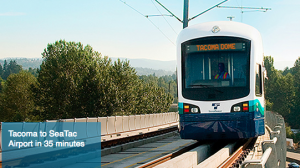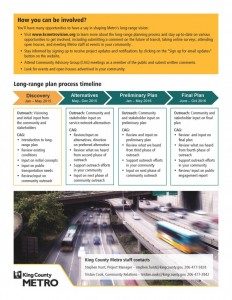
Realignment: Adjusting Projects and Plans in Response to COVID
Through a process called realignment, the Sound Transit Board of Directors is working to determine which plans and timelines for voter-approved projects will need to change due to lower revenue projections, absent receiving alternative revenue.
At their June, 2020 meeting, the Board set a process for this capital program realignment that will move forward between now and summer 2021, providing time for the financial impacts of the recession to become clearer while we pursue additional funding opportunities. The realignment will establish clear expectations about project delivery timelines by summer 2021 after gaining input from the public and partner organizations.
Based on agency contractual commitments already in place, Sound Transit will focus future realignment actions on projects that are not already in construction or under contract. Major projects that are still moving forward right now, contributing to our region’s economic recovery, include but aren’t limited to light rail extensions to Northgate, Lynnwood, Bellevue, Redmond, Federal Way and the Tacoma Link Hilltop Extension.
Federal Way Link Extension
Operations Maintenance Facility South
Tacoma Dome Link Extension
Comment by Feb. 10, 2025 on proposed light rail routes and station locations
Sound Transit invites you to review and comment on the Tacoma Dome Link Extension (TDLE) Draft Environmental Impact Statement (EIS), which describes the light rail routes (called alternatives) and station locations under consideration and how each alternative might affect the surrounding natural and built environment.
Learn more and get involved
The Draft EIS details the project’s potential impacts, benefits, and mitigation strategies. There are several ways to comment:
Your feedback will guide Sound Transit and the Board in selecting the project’s preferred alternative in 2025. The Board will select the project to be built after the Final EIS is published, which is expected in 2027.

 Federal Way Link Extension
Federal Way Link Extension Tacoma Dome Link Extension
Tacoma Dome Link Extension





